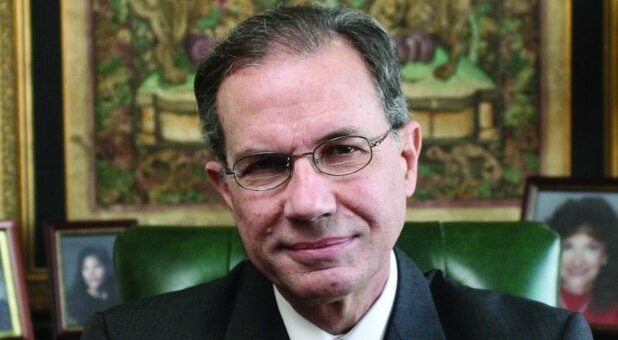Economist Marc Nuttle explains how Christians can prepare for a great harvest of souls—via an imminent economic disaster that could cripple our nation and the world
You’ve seen the headlines replete with the news, analysis and projections of economic stress in the world’s financial systems. Both liberal and conservative government officials, economists, investment bankers and politicians unanimously agree that the world’s economic system cannot continue “business as usual” without dramatic aid, assistance, reform or restructuring.
One doesn’t have to look much farther than the financial situation of world governments, including the United States, which is 100 percent in debt in ratio to its gross domestic product (GDP), approaching 50 percent of the population receiving their primary source of income from the government, and less than 50 percent of the population paying federal income tax. In addition to this, the world is running a deficit in excess of 10 percent of world GDP (the U.S. is at 14 percent of U.S. GDP).
These numbers are unsustainable. Greece has hit its debt wall. Spain and Italy are facing their own debt walls, as is France. Former British Prime Minister Tony Blair recently stated that if Europe did not change its entitlement mentality, it would not survive. (For articles explaining in plain English what a debt wall is and why we must restructure the world economic system, visit debtwall.org and search for the “Catch 22” series.)
There is no easy way out of the situation. We cannot tax our way out, spend our way out, borrow our way out, print our way out or grow our way out. We have to deal with the debt and the deficits by restructuring government programs and the services they provide. This will not happen without some pain and sacrifice. The longer we deny reality, the greater the pain and sacrifice.
So enough lamenting—you’ve heard this before. As citizens, what can we do about the situation when we seemingly have no control? Politicians are in gridlock. No one is telling the whole truth. And no one wants to call for joint sacrifice. So what do we do?
It’s time for believers to provide our own solutions and become part of the answer to the problem. The church should be seen as a light, a provider of hope and a leader in the transition to a new, stable economic system.
I would suggest taking a world Christian biblical point of view: Seek first His kingdom and His righteousness (see Matt. 6:33 and Luke 12:31).
Early Church Economy
For a solid model, we can examine what the New Testament churches of the early centuries did to seek God’s kingdom first amid living in a secular world. According to Bruce Shelley, author of Church History in Plain Language, the Roman emperor Julian the Apostate “wanted to set aside Christianity and bring back the ancient faith [of pagan worship], but he saw clearly the drawing power of Christian love in practice.”
Julian is quoted as saying: “Atheism [his term for the Christian faith] has been specially advanced through the loving service rendered to strangers, and through their care for the burial of the dead. It is a scandal that there is not a single Jew [meaning Christian] who is a beggar, and that the godless Galileans care not only for their own poor but for ours as well; while those who belong to us look in vain for the help that we should render them.”
Shelley argues that one of the reasons for the spread of the church throughout the Roman Empire was the “practical expression of Christian love.” The early Christians did not rely upon the government for anything—after all, they were being persecuted by it. Yet they took care of themselves and others who needed help, and they set no qualifications or criteria for whom they helped. It was one of the most successful periods of evangelism in Christian history.
Yet another opportunity—and in many places, increased persecution—may be coming that allows us to show the love of Christ and enhance the harvest. Europe is in recession. China is not meeting its economic benchmarks of growth. The U.S. is not in a position, primarily because of its debt, to lead the world out of this recession.
Some economists predict that by October European banks will be in need of substantial relief. Depending upon the extent of the bailout required, this could in fact impact the American economy.
In the opinion of Alan Greenspan, former chairman of the Federal Reserve, Europe is the big question mark in our ability to recover. Milton Friedman, the noted economist with whom I once worked with during the Reagan administration, once said to me, “If the king in the middle ages—who controlled all land, all rent, all wages, had slaves, could print money and whose word was law—could not print and borrow his way out of trouble, what makes you think that government can do it today?”
This has happened before. It happened to Rome in the third and fourth centuries. The lack of proper response by the Roman government was a major element in the fall of the Roman Empire. Great Britain went through a government and economic restructuring in the late 19th and early 20th century at the dawn of the Industrial Revolution.
We have learned these lessons before. And we are in absolute denial to think that there is any easy way out of this situation.
























